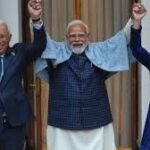Influencing Canadian Elections by China and India has made substantial concerns about the integrity of the electoral process and the influence of foreign powers on domestic politics. The evidence and responses to these allegations vary, making it essential to examine the situation critically.
Canadian officials have accused China of engaging in activities to influence Canadian elections, particularly through cyber espionage, disinformation campaigns, and clandestine support for specific candidates. Reports suggest that Chinese operatives might have attempted to sway public opinion and manipulate the outcomes to favor pro-China policies or candidates more sympathetic to Beijing’s interests.
Evidence Presented
- Intelligence Reports: Canadian intelligence agencies, such as the Canadian Security Intelligence Service (CSIS), have reportedly compiled evidence suggesting Chinese attempts to interfere in the 2019 and 2021 federal elections. These reports include details of cyber activities aimed at stealing sensitive information and spreading disinformation.
- Leaked Documents: Several media outlets have published leaked documents indicating that Chinese diplomats and their proxies were involved in efforts to influence certain Canadian electoral districts with significant Chinese-Canadian populations. These documents highlight specific tactics used to shape voter behavior.
- Public Statements: High-ranking officials, including Prime Minister Justin Trudeau, have publicly acknowledged these threats, although they have often stopped short of detailing specific incidents. Trudeau has emphasized the government’s vigilance in protecting the electoral process from foreign interference.
Despite the accusations and the intelligence reports, concrete proof that directly links Chinese actions to altered election results remains elusive. The covert nature of espionage and influence operations makes it difficult to establish clear causation between these activities and specific electoral outcomes.
The accusations against India are somewhat different, focusing on attempts to influence the political landscape through the Indian diaspora in Canada. Allegedly, the Indian government has sought to promote candidates and policies that align with its interests, particularly concerning Sikh separatism and broader Indo-Canadian relations.
Evidence Presented
- Diaspora Influence: There are claims that Indian diplomats and influential community leaders have tried to mobilize the Indian diaspora to support certain political parties or candidates. This is purportedly done through cultural organizations, religious institutions, and social media platforms.
- Funding and Support: Accusations include financial contributions to political campaigns and providing logistical support to favored candidates. These actions are intended to ensure the election of individuals sympathetic to India’s policies.
As with China, the evidence against India is circumstantial and indirect. While the influence of diaspora communities is well-documented, proving a direct link between Indian government directives and specific electoral outcomes is challenging. The activities alleged are often conducted through legal and socially accepted channels, making it difficult to classify them as outright interference.
The Canadian government has taken several steps to address these concerns, including:
- Strengthening Cybersecurity: Enhancing the cybersecurity framework to protect electoral infrastructure from foreign cyber threats.
- Legislation: Proposing new laws to counter foreign interference and increasing transparency in political funding.
- Public Awareness: Launching campaigns to inform the public about the risks of foreign interference and encouraging vigilance.
Public and Political Reactions
Public reaction to these allegations has been mixed, with some calling for more robust measures and transparency, while others caution against exacerbating tensions with China and India. Politically, the accusations have fueled debates about national security, sovereignty, and the need for a balanced foreign policy.
While there are significant allegations against China and India regarding interference in Canadian elections, concrete proof remains challenging to obtain due to the clandestine nature of such activities. Intelligence reports and public statements provide some evidence, but they fall short of definitive proof. The Canadian government continues to enhance its measures to protect the electoral process, balancing the need for security with maintaining diplomatic relations. As this issue evolves, ongoing vigilance and transparent investigations will be crucial in safeguarding democratic integrity.
4o





Leave a Reply